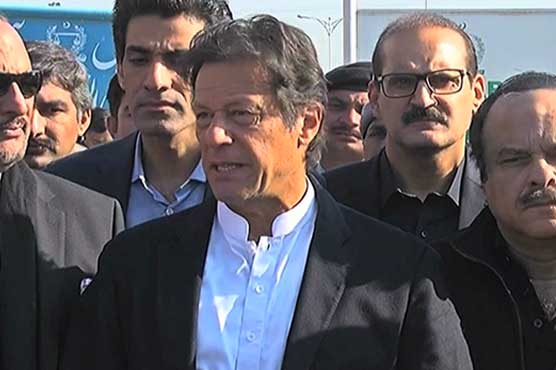News Analysis |
With the Election Day around the corner, the former ruling party PML-N has increasingly become insecure about their political stand hold in Pakistan, as they desperately search for ways to save grace. Recently, an accountability court gave a verdict against the former first family, awarding imprisonment to the ousted Prime Minister Nawaz Sharif, his daughter and son-in-law in a reference field by the National Accountability Bureau (NAB).
Since Nawaz and his daughter were in London, they did not appear before the court. Captain (R) Safdar, despite being in Pakistan, also had preferred not to appear before the court. However, after two days, Safdar appeared in Rawalpindi, led a march of a few hundred PML-N workers chanting against the judiciary’s verdict, and had surrendered before the authorities.
When Nawaz has been disqualified and convicted by the courts, he is certain to mobilize the people to come out against the state institutions which is politically dangerous in a state where society is too heterogeneous in religious and ethnic terms.
The workers who obscured the official task and unnecessarily blocked roads in Rawalpindi were also arrested. The party seems uncomfortable over the arrest of its workers for two reasons; one, the PML-N considers it to be their legitimate political right to protest and block the roads, and secondly, the party wants people to come out to show the establishment and the judiciary of its strength.
In this regard, the PML-N on Wednesday demanded that caretaker Punjab Chief Minister Hasan Askari Rizvi to take action against the arrest of over 200 party workers form Rawalpindi and the imposition of Section 144 in Lahore ahead of Nawaz Sharif and Maryam Nawaz’s scheduled arrival in the city on Friday.
Read more: Nawaz Sharif annoyed at failure to mobilize people following his verdict
Senator Mushahid Hussain Syed, chairman of the party’s Central Media Committee, wrote a letter to the caretaker CM and complained that the PML-N was being targeted despite not violating the law.
Earlier, Rawalpindi Police spokesperson Imran Kazmi had confirmed that around 100 PML-N workers were arrested for participating in the rally which culminated in the arrest of retired captain Safdar, as it had blocked a road and flouted other rules in the Election Commission of Pakistan’s (ECP) Code of Conduct.
An accountability court gave a verdict against the former first family, awarding imprisonment to the ousted Prime Minister Nawaz Sharif, his daughter and son-in-law in a reference field by the National Accountability Bureau (NAB).
In Pakistan, it may not be something unique that political workers get arrested for violating the ECP’s Code of Conduct; however the manner in which it has been conducted is relevant. Nawaz Sharif, who was not happy over non-mobilization of his workers in Pakistan after the verdict against him was announced, has engaged himself in the politics of confrontation.
Some political commentators and academics in Pakistan view Nawaz’s anti-military and anti-judiciary stance dangerous for the stability and order of the society. Pakistan has a fragmented political landscape where the process of national integration has always been compromised and almost unsuccessful. Leaders in such a situation are expected to behave responsibly but Nawaz Sharif has, according to senior analyst Irshad Bhatti, preferred personal interests over national interests of Pakistan.
Read more: Nawaz Sharif fears PML-N’s defeat, offers justifications in advance
At the present moment, when Nawaz has been disqualified and convicted by the courts, he is certain to mobilize the people to come out against the state institutions which is politically dangerous in a state where society is too heterogeneous in religious and ethnic terms.
The letter written by Senator Mushahid Hussain Syed that workers should be allowed to block roads and protest to support their leader is lamentable for majority of Pakistanis. A court has convicted and punished a person and his aides want him to be welcomed and given protocol. This is a reflection of most of Pakistan’s political parties and their political preferences.













